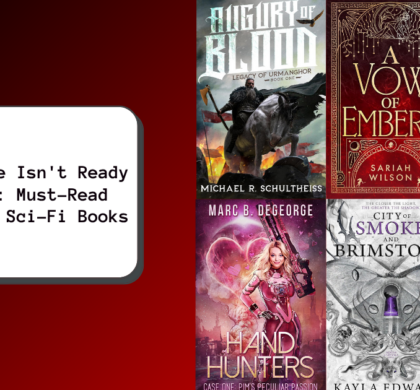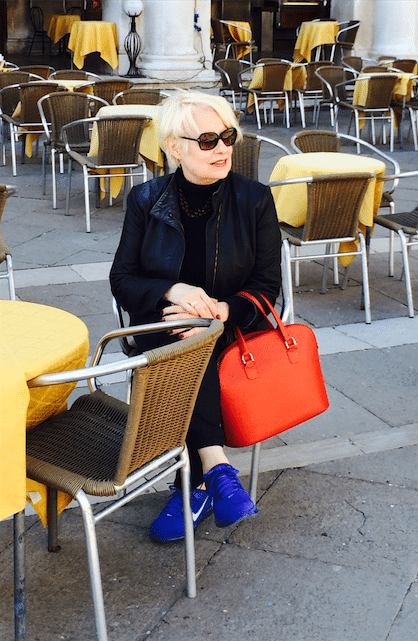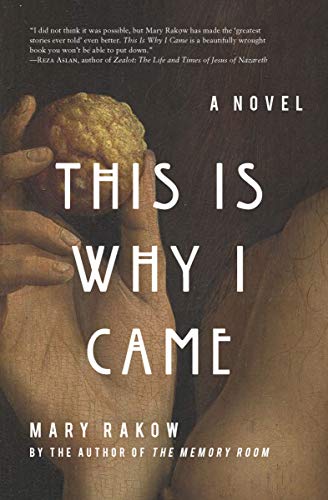Interview with Mary Rakow, Author of This is Why I Came
28 Dec 2015
Tell us a little bit about your new release, This is Why I Came.
You know I am horrible at summarizing my own work. So perhaps could we give your readers the catalogue copy from Counterpoint Press? I’m very happy with it.
Sure!
A woman sits in prayerful meditation, waiting to offer her first confession in more than thirty years. She holds a small book on her lap, one that she’s made, and tells herself again the Bible stories it contains, the ones she has written anew, for herself, each story told aslant, from Jonah to Jesus, Moses to Mary Magdalen. Woven together and stitched by hand, they provide a new version, virtually a new translation, of the heart of this ancient and sacred text. Bernadette traces, through each brief and familiar story, a line where belief and disbelief touch, the line that has been her home, ragged and neglected, that hidden seam.
Say you now host a literary-themed talk show. Who would be your first guest ?
Jonathan Ive, Apple’s Chief Design Officer.
Apple products are everywhere and loved because the technology is astonishing and the object you hold in your hand is perfectly designed. The design is so perfect that the design itself disappears. I would ask Ive, who was hired early on by Steve Jobs, about the 10 Design Principles of Dieter Rams to whom he is deeply indebted. Those Design Principles, like the Ten Commandments in the world of industrial design, are perfect for writing fiction so I’d like us to talk about that and this is why:
If we assume that each person on the planet is infinitely complex and unique, which I do assume, then what we want is that complex subjectivity to be what lies behind the novel in the same way we want extraordinary technology to lie behind the Apple product. Without that power, you’d just have pretty, useless objects. We want, from the novel, something radically personal and radically unforeseen. We want the writer to have made something he or she alone could have made. We want it to make our world larger. But at the same time we want the novel as an object to have been perfectly designed by the time it reaches us, so that all the design decisions have disappeared. So the words on the page or on the screen, so link us to the vast subjectivity of the author that the words disappear. When this happens, the reader and the author meet each other on a bridge. The reader moves across that perfectly designed bridge with all his or her own complex subjectivity and then, only then, the object is finally complete.
What’s your favorite quote or scene from This is Why I Came?
I love very much the story of Legion although I’ll likely never read it in a public reading because my fondness is too personal and I’d likely cry. I actually love all the stories. That’s when we know the book is finished, right? We’ve put something outside ourselves that is truthful. And the truth of it is what we love.
Jonah is the last of the stories from the Hebrew part of the Bible, the “Old Testament.” And I like it because it honors the ethical intention that I feel beneath today’s “New Atheism.” It’s an ethical position which Jonah finally takes and in which he refuses to be a prophet any longer. It is after the conversion of the large city of Nineveh. His wife asks him, “Then what will you be?” And he replies “I will be God’s atheist.” I like the contradiction in that sentence. He wants to not worship or serve any God who requires him to separate himself from his own intergrity. I think that is a very beautiful thing.
And I like that I let him see into the future and when he does, he sees that he will be misunderstood. And that people will know him for the sort of sensational story of being 3 days in the belly of the whale. Small children will love the story and adults will ignore it or argue about whether or not it’s feasible, all this business. Jonah sees how he will not be really known except by his wife. Of course I made all this up, but it pleases me. The way we are not known deeply. The way we have our version of ourselves and other people have their versions of us and how rare it is when that gap is crossed. As Barbara says in The Memory Room, my first novel, “Most people underestimate how erotic it is to be understood.”
Do you have a motto, quote or philosophy you live by?
Above my kitchen sink lately I have the quote: “3 billion people around the world live on $2.50 a day or less.” It’s just a fact, you know. But it gives rise to a lot of thinking. The implications of this fact. And I have things like this around me as reminders. And they change.
But I’ve never found one that is sufficient. No single line. Like the incomparable Donna Vreeland was famous for saying of fashion, “The Eye has to travel.” Or like St. Augustine, “The heart is restless until it finds its rest in You,” meaning God, in his case. So these single lines are like windows, openings, entry-points to use Jorie Graham’s gorgeous phrase but never completely satisfying in themselves. I think we want something more existential. We want a relationship to something or some one or some other within which everything else finds it’s place. What I want, and I think everyone wants, is to honor these mottos but also to get behind all of them. To get behind all ephemera, all sights and sounds and tastes and injunctions and to get to whatever it is that is its background. To get at what is behind all of this. Behind thought. Behind sensation. Behind imagery. Behind good design. We want to take the bridge all these things are and walk across to the other side. To get to silence, for example.
Like this wonderful new fashion designer who is fabricating very 21st century clothing that is taking technology seriously. Others are making fabrics that have nanotechnology that will translate the body’s own energy so that it charges the smart phone you have in your pocket. People at Google and Stanford and UC Berkeley. But this other designer is doing the opposite. He’s making fashion that involves a shielding of notification from the mobile devices we carry. This is fascinating to me. We all want stimulation and language and the time to digest it. And some people, like myself, need tons of time to digest small amounts of information. I am very, very contemplative in that way. But it doesn’t matter. We all need both of these things. So he’s looking on this other side. Fashion that moves you, or allows you to stay connected but to also move toward silence.
I like this very much. His work reminds me that we want language and we want it to take us to silence. It the string quartet plays the last note on stage and if it is great music and if their performance has been superb, what follows, always, is great silence. This is what I think we all hunger for.
Mary Rakow is the author of the new book This is Why I Came
Connect with Mary
Author Website
Twitter
Book Website
Buy The Book
Sign up for our email and we’ll send you the best new books in your favorite genres weekly.
Related
grant
Recommended Posts

The Future Isn’t Ready: Must-Read Fantasy & Sci-Fi Books
11 Jul 2025 - Books to Read if You Like..., eBook, Fantasy & Science Fiction, News



